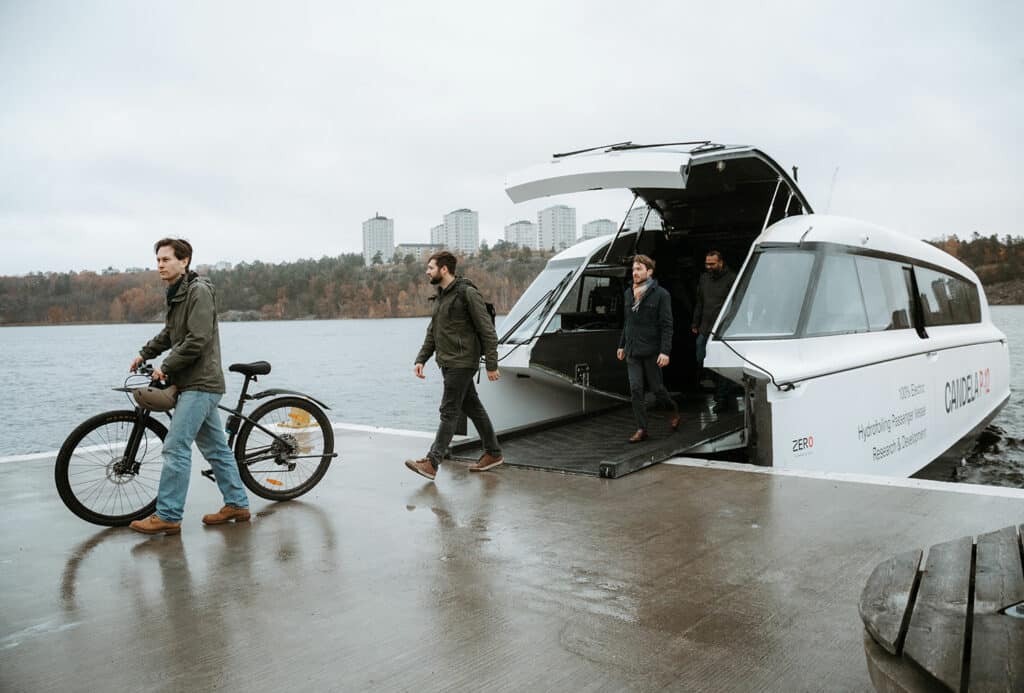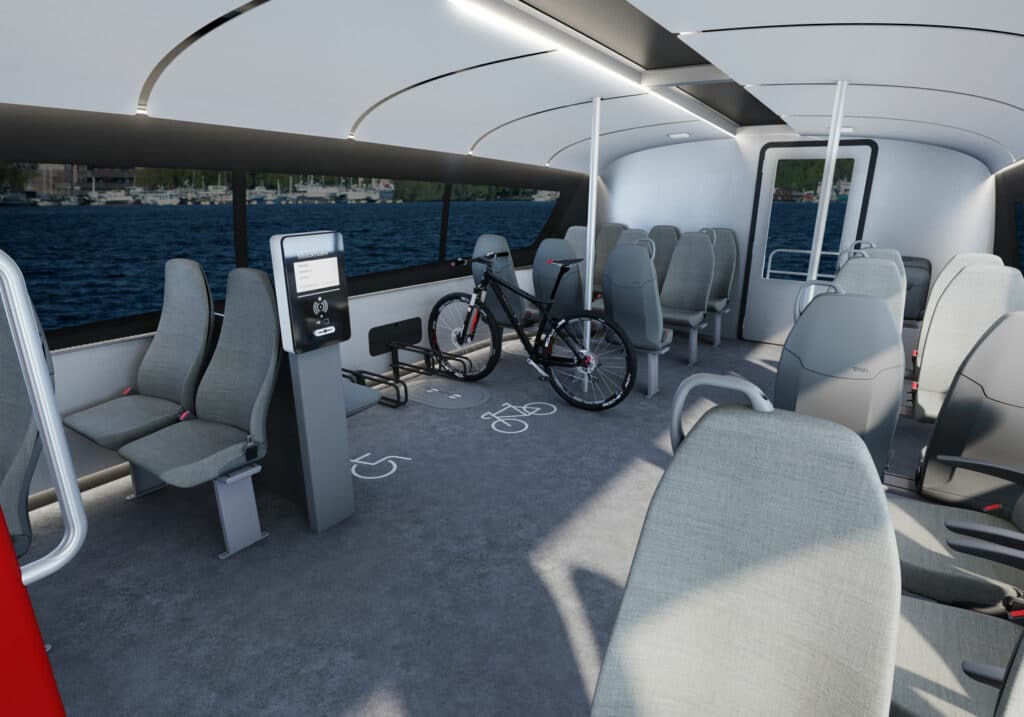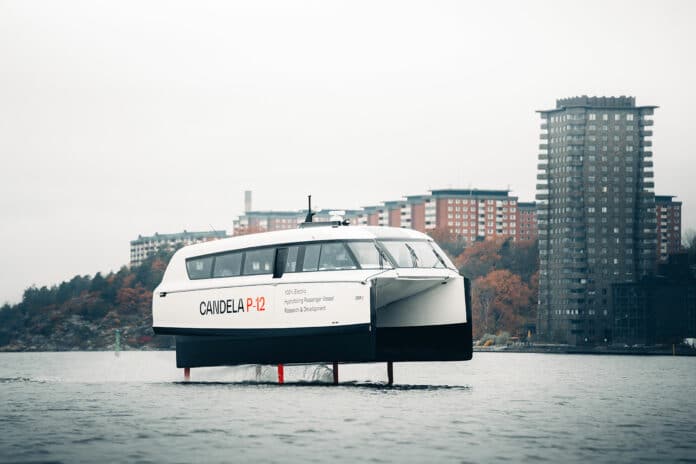The Swedish electric boatmaker Candela has announced the successful completion of test flights for the Candela P-12, the world’s first electric hydrofoiling passenger vessel. The flying electric ferry is now progressing into serial production at Candela’s Rotebro factory in Stockholm.
Maritime transport represents 3% of global CO2 emissions, a figure projected to grow to 13% in the coming decades if no action is taken. The industry is looking towards electric vessels as a solution. However, high costs and limited performance have resulted in extremely low adoption rates, even on urban and coastal waterways.
Candela is dedicated to accelerating the shift towards a fossil fuel-free maritime future. The C-8 electric speedboat, which is the company’s most advanced model to date, has even set world records for endurance thanks to its incredibly efficient design.
Like its other ferries, the new Candela P-12 makes use of computer-guided hydrofoils to elevate its hull above water friction. By attaining foilborne speeds of over 18 knots (20 mph), the Candela P-12 consumes 80% less energy than traditional high-speed vessels. This feature addresses the primary challenges that have hindered the widespread adoption of electric, fast vessels to date: limited range and slow speeds due to the excessive energy consumption of conventional hulls.

The passenger ferry has been designed for single-person operation and is powered by two C-Pod electric drive units. When tested, the Candela P-12 reached a top speed of 30 knots (34 mph), setting a record for electric passenger vessels. It has a range of up to 50 nautical miles (57 miles) from its 252 kWh battery at 25 knots (29 mph), depending on version and load. This is more than enough range to cover most coastal transport needs.
Another benefit of Candela’s boats is that they leave no wake behind the boat. This is important in places like Venice, where boats are required to travel at slower speeds to prevent creating wakes that could erode canal edges and buildings. Tests showed that the P-12’s wake is minimal, which means that it will not erode coastlines or damage docks and moored ships even when traveling at full speed.
The catamaran measures 11.99 meters (39.3 feet) in length and has a 4.5 meters (14.7 feet) beam. It is available in three variants: the P-12 Shuttle, P-12 Business, and P-12 Voyager.

The Shuttle configuration seats 30 passengers, who board the vessel via an extendable, automatic bow ramp, adjustable for docking at varying quay heights from 0.3 to 1.8 meters. There’s space for bicycles, along with strollers and wheelchairs, that encourages the integration of cycling with public transport.
The Candela P-12 Shuttle is set to join Stockholm’s public transport network in 2024, cutting commuting time from the city center to Ekerö island from 55 minutes to 25.
The Business version features a premium interior with seating for 12 to 20 passengers, while the highly adaptable Voyager version offers customers flexibility in interior design, catering to both private leisure and commercial clients.
“With the P-12, we’re not just offering a faster, more comfortable electric alternative to fossil fuel-powered vessels,” Erik Eklund, Candela’s Director for Commercial Vessels, emphasizes. “We enable operators to make the switch to sustainable vessels that are cost-effective and profitable, a crucial step towards clean oceans and lakes.”
The Candela P-12 is now entering serial production, with the Shuttle version priced at €1.7 million ($1.85 million), which matches the cost of similar-sized ICE vessels. The estimated prices of Business and Voyager versions are currently not known.
“Today, in many cities, congested roads are common while waterways – humanity’s oldest transport infrastructure – remain underutilized for rapid commuting. The P-12 will let you use these waterways as green highways, enabling fast intra-city connections. Often, the quickest route is by water,” said company founder Gustav Hasselskog.
